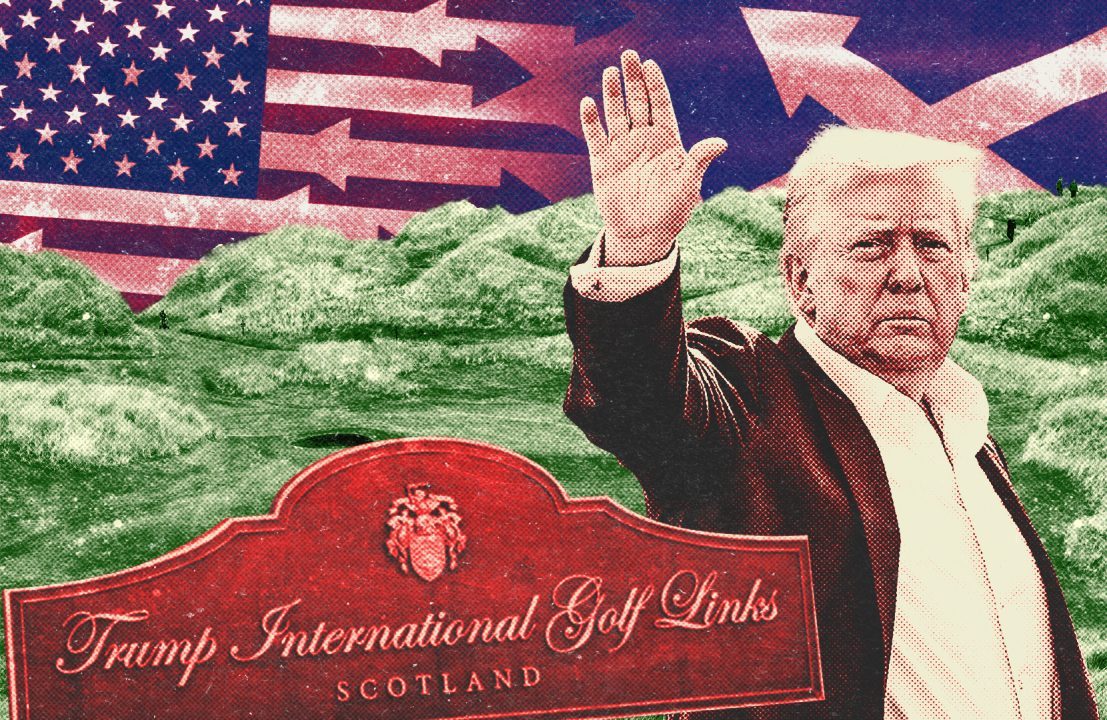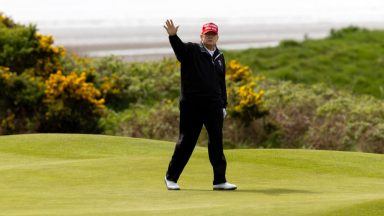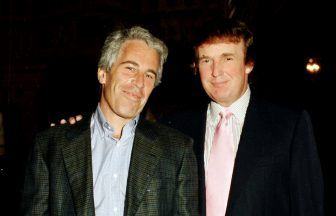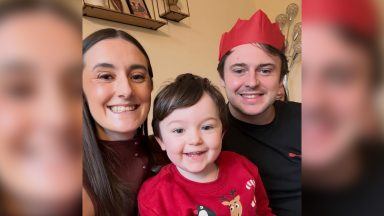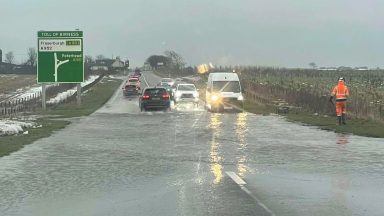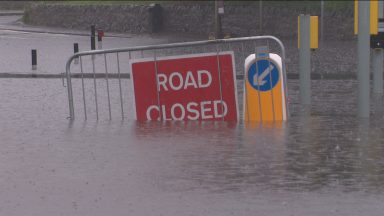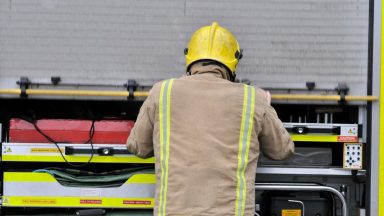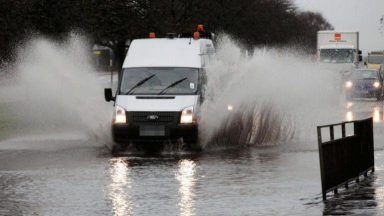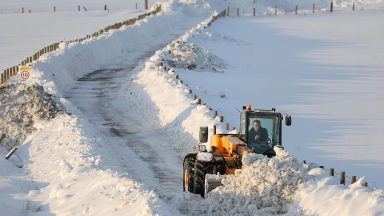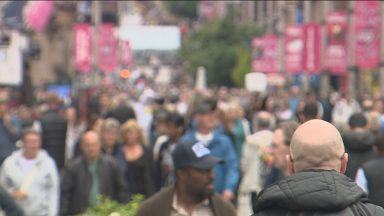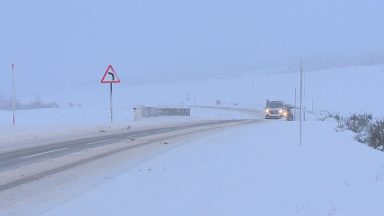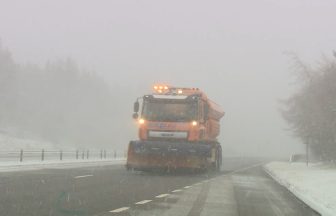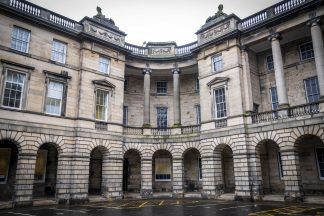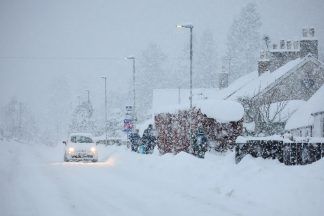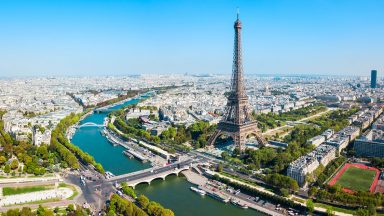New golf courses, protests and a 5,000-strong police operation – Donald Trump is arriving in town.
The US President is visiting in a private capacity, ahead of a full-blown state visit to the UK later this year.
He will also meet First Minister John Swinney and Prime Minister Sir Keir Starmer during his five-day trip.
STV News looks at what we can expect in the coming days and the political backdrop to Trump’s arrival.
What is Trump doing in Scotland?
Trump will visit both of his golf courses in Scotland – Turnberry in Ayrshire and Menie in Aberdeenshire.
It is rare that US presidents promote their personal interests so publicly while in office.
But White House press secretary Karoline Leavitt said Trump will also meet Starmer “to refine the great trade deal that was brokered between the United States and the United Kingdom”.
Number 10 said Starmer had accepted an invitation to meet during the “private” trip to Scotland.
Meanwhile, the Scottish Government said Swinney’s meeting would be an “opportunity to promote the interests of Scotland”.
Trump, whose mother Mary was born on the Isle of Lewis, last came to Scotland in 2023, when he visited Turnberry and broke ground on a new 18-hole course at Menie.
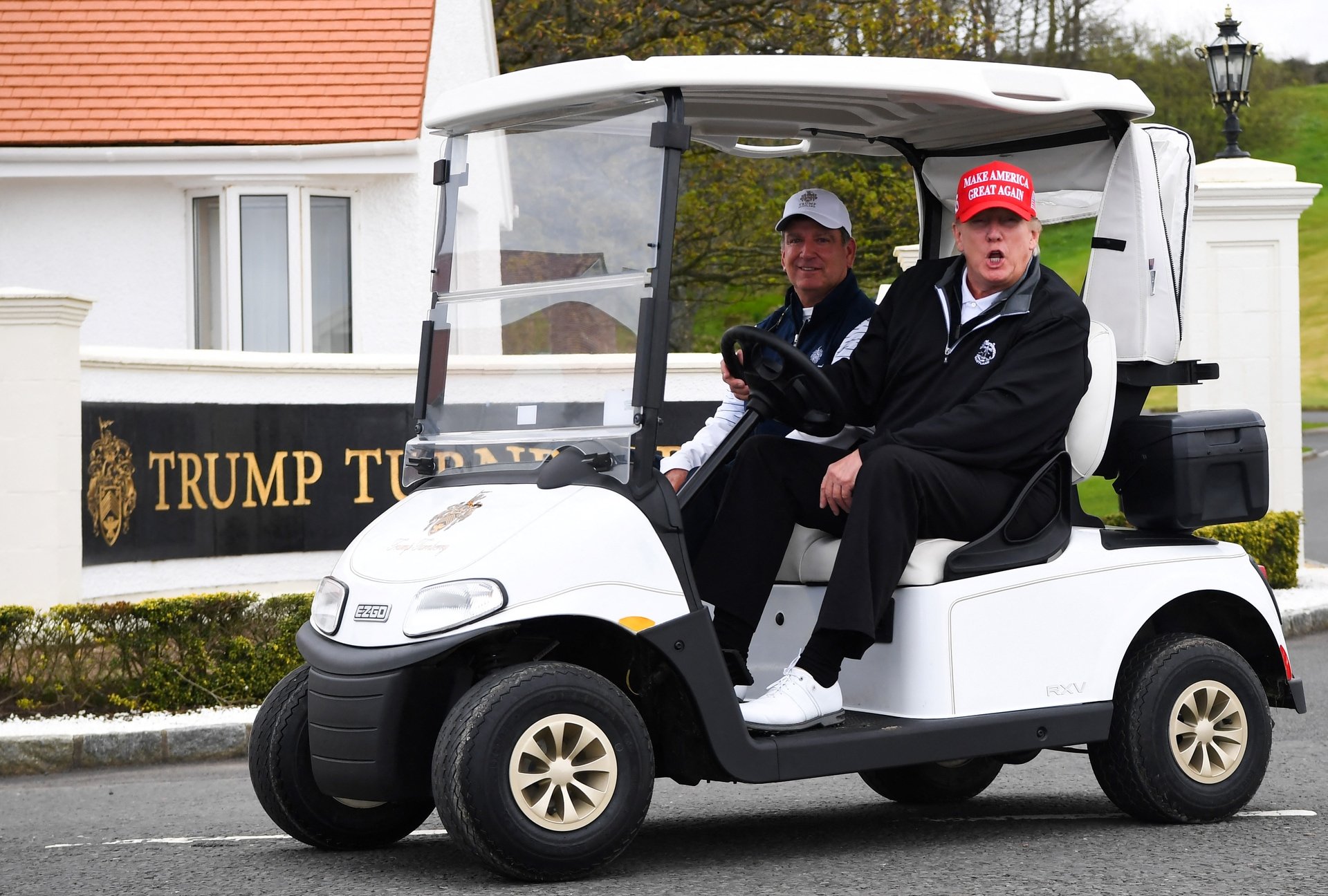 Getty Images
Getty ImagesWhat kind of reception will he get?
Significant protests took place during Trump’s last presidential visit in 2018, with more expected this time around.
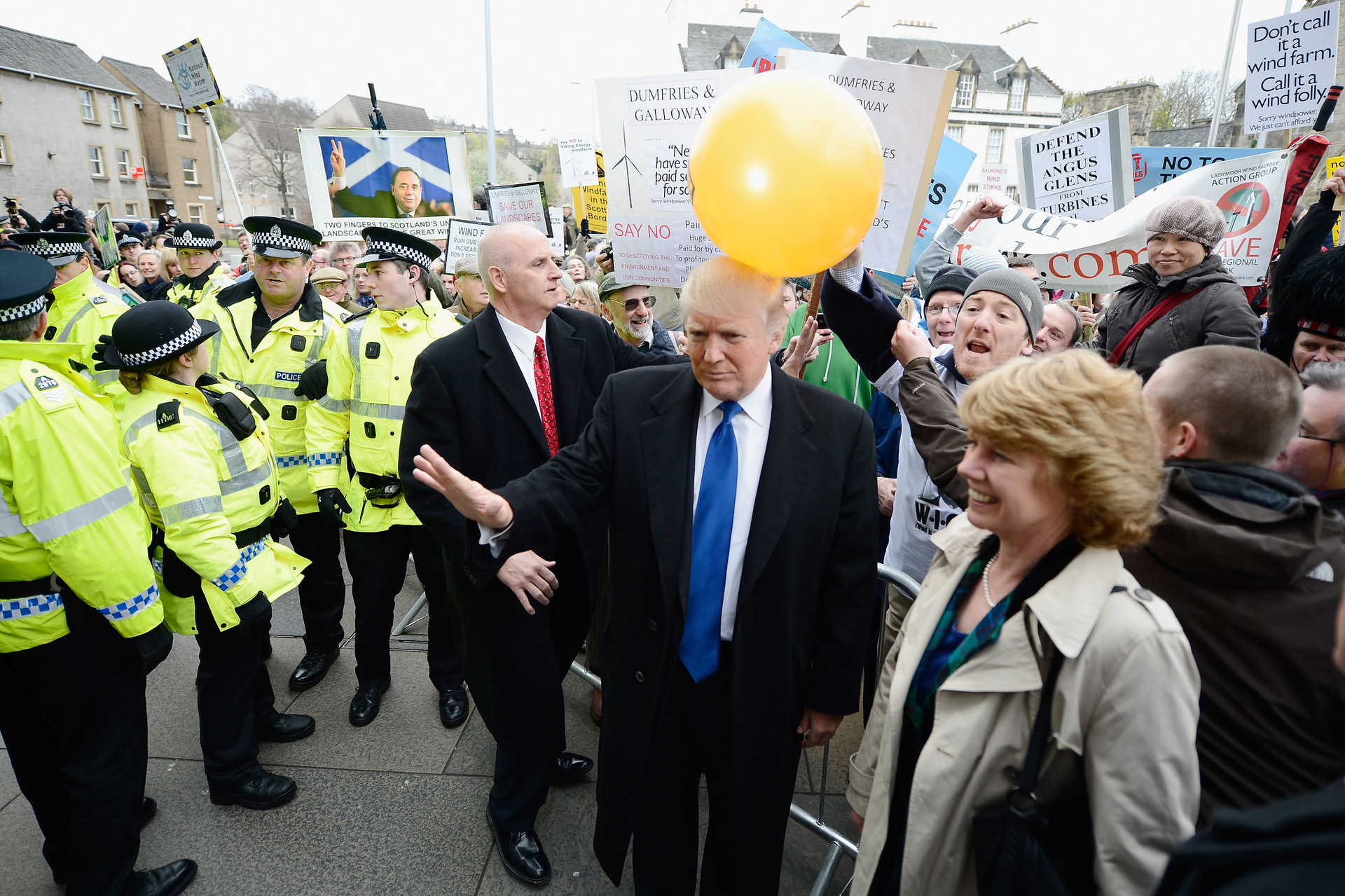 Getty Images
Getty ImagesPolice are working on the assumption that there will be protests in Ayrshire, Aberdeen, Glasgow and Edinburgh.
The Stop Trump Coalition is organising events in Aberdeen in the city centre and outside the US consulate in Edinburgh on Saturday at midday – similar gatherings during Trump’s visit to Scotland in 2018 attracted thousands of protesters.
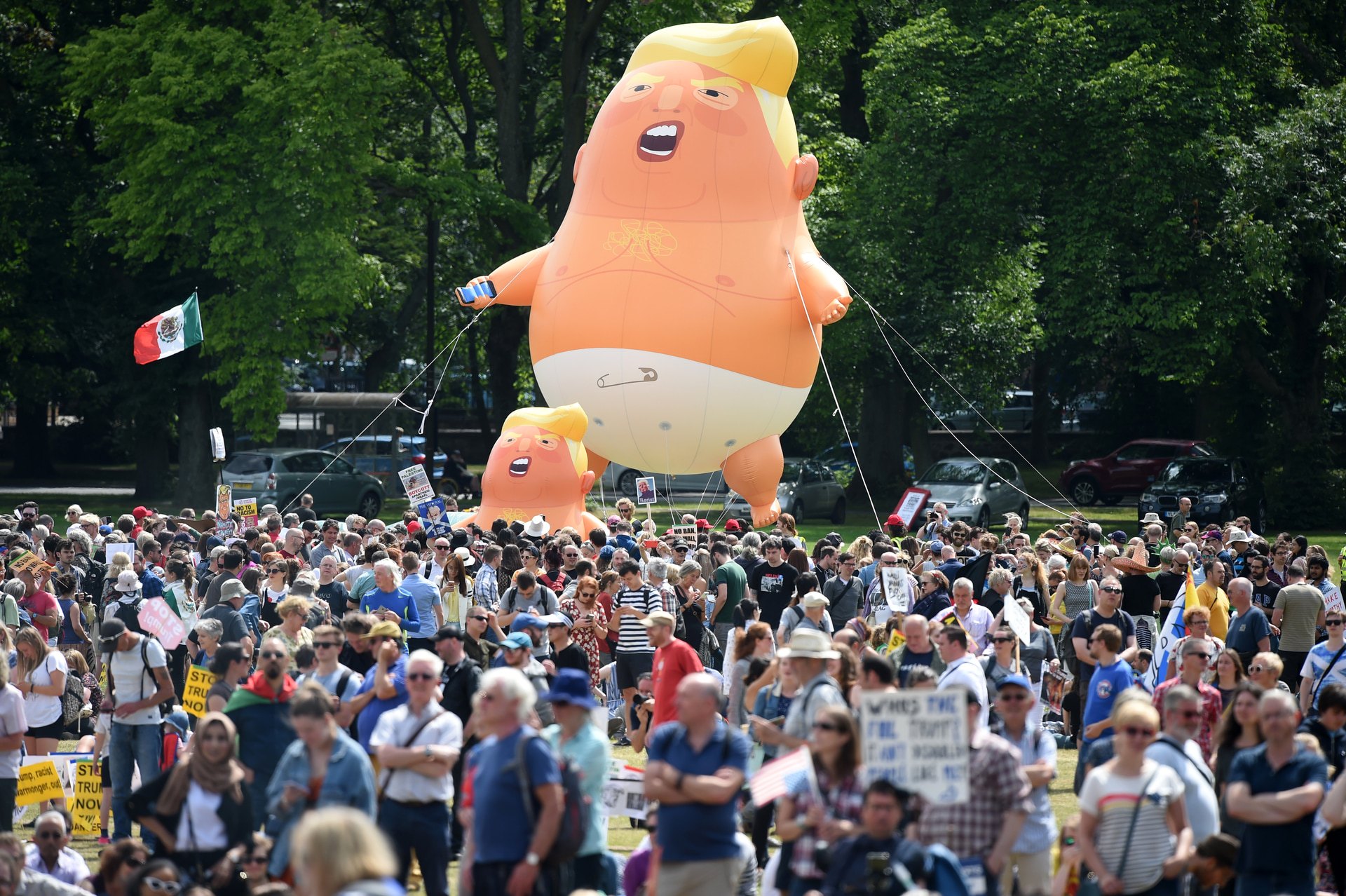 Getty Images
Getty ImagesAlong with the two main city gatherings, protests are expected around Turnberry and Menie.
Connor Dylan, the organiser of the anti-Trump protests in Aberdeen and Edinburgh, said: “The vast majority of people in Scotland were already opposed to everything Trump stood for when he first visited as president. As we’ve learned more and more about him and the way he governs, that attitude has only hardened.
“His politics – and those of the people around him – have only become more extreme since then, with once fringe ideas like mass deportations now part of mainstream American politics and being effectively exported to the UK and other European countries by far-right allies.”
Scottish Greens co-leader Patrick Harvie says Swinney’s planned meeting with the US President is “out of step with Scotland’s values”.
He said: “Donald Trump is a convicted criminal and political extremist, there can be no excuses for trying to cosy up to his increasingly fascist political agenda.”
But Scottish secretary Ian Murray said Trump would get a warm welcome from the UK Government.
He said: “The office of the president of the United States and the office of the Prime Minister are ones that work very, very closely together, and should do, because it’s in our national interest to do so.
“We should make sure those relationships are in place because it’s important for our defence, our security, our economy – especially for jobs – and it’s really, really important to the finer details of the US trade deal that’s been done.”
Murray’s comments come despite a 2019 motion in the House of Commons that he backed – along with foreign secretary David Lammy and health secretary Wes Streeting – while in opposition that accused the president of “misogynism, racism and xenophobia”.
Swinney said it was his responsibility to advance Scotland’s interests during his meeting with Trump, adding he plans to raise “global and humanitarian issues of significant importance”.
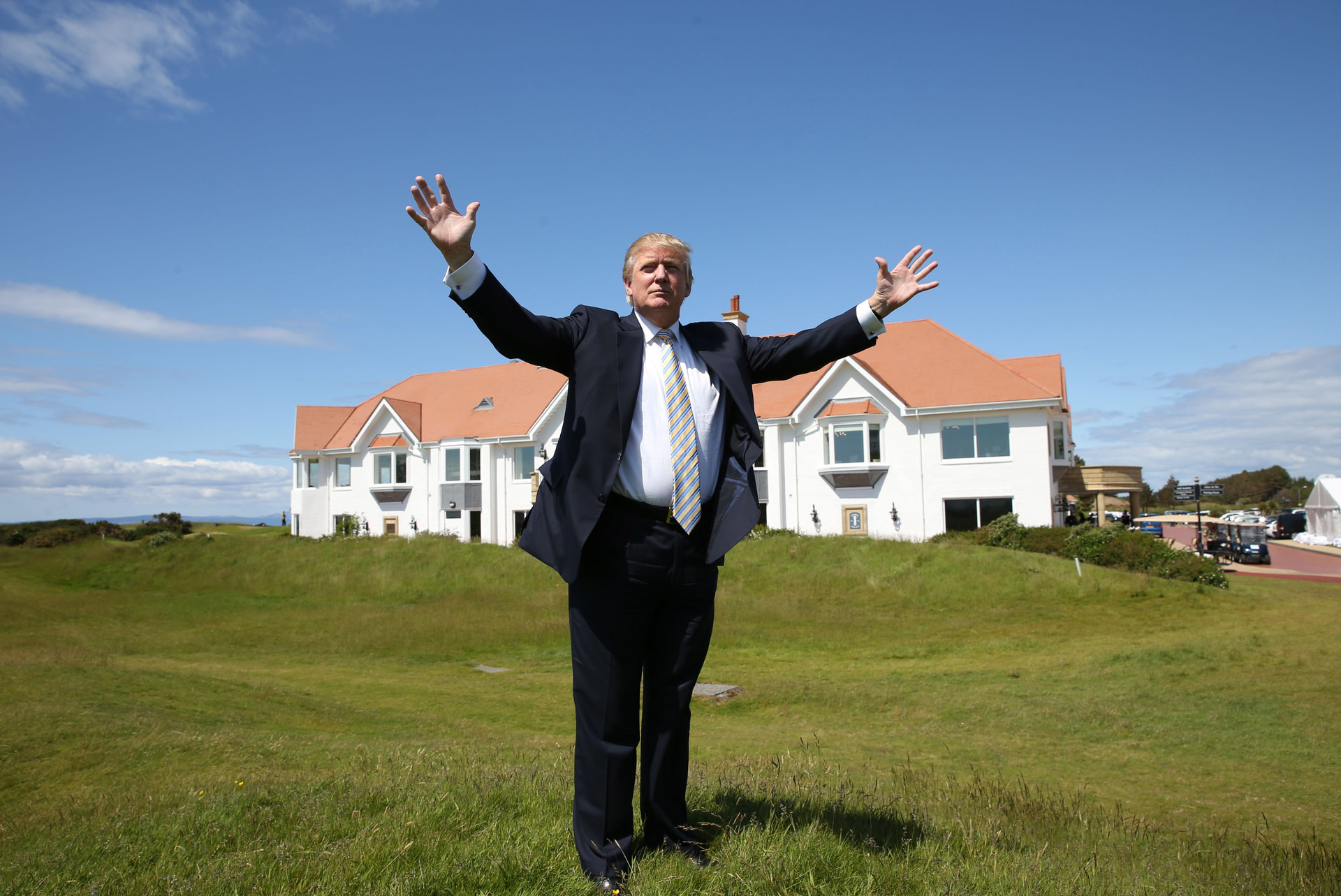 Getty Images
Getty ImagesHe said: “Scotland shares a strong friendship with the United States that goes back centuries. That partnership remains steadfast through economic, cultural and ancestral links – including of course, with the President himself.
“As we welcome the President of the United States, Scotland will be showcased on the world stage. This provides Scotland with a platform to make its voice heard on the issues that matter, including war and peace, justice and democracy.
“It also includes the millions of Americans – many of them potential future tourists or investors in Scotland – who will watch their elected President as he visits our country.
“As First Minister it is my responsibility to advance our interests, raise global and humanitarian issues of significant importance, including the unimaginable suffering we are witnessing in Gaza, and ensure Scotland’s voice is heard at the highest levels of government across the world.
“That is exactly what I will do when I meet with President Trump during his time in Scotland.”
How big is the policing operation in place?
The policing operation will be the biggest that Police Scotland has faced since the death of Queen Elizabeth II in 2022.
The Police Service of Northern Ireland has confirmed “a number of officers” will be arriving in Scotland, with the cost of deployment being paid for by Police Scotland.
Assistant chief constable Emma Bond, who is heading up the operation, said Police Scotland will take a “proportionate” approach to ensure people can protest safely, with the force offering to engage with demonstrators ahead of time on a “no surprises” basis.
Bond told STV News: “We will absolutely look to accommodate and communicate with protest groups to make sure they are able to exercise those rights.
“Anybody who does plan to attend, I’d ask them to get in contact and speak to our protest liaison officers so we can maximise our no surprises approach.”
Chief Superintendent Rob Hay, president of the Association of Scottish Police Superintendents, said the visit of the US President would require a “significant operation across the country over many days” from Police Scotland.
“The private visit of President Donald Trump to Scotland at the end of July will require the Police Service of Scotland to plan for and deliver a significant operation across the country over many days.
“This will undoubtedly stretch all our resources from local policing divisions to specialist and support functions such as contact, command and control.”
Hay urged the public to be aware of the “significant demands that will be placed on policing services during this period” – adding these result from not only the Presidential visit but the “many popular events that Scotland hosts in the summer months, which bring thousands of tourists to our country and rely upon partnerships with policing to support their safe delivery”.
Earlier this week, the Scottish Police Federation, which represents 98% of the country’s officers, stated that it was seeking legal advice regarding the plans surrounding Trump’s visit.
The Scottish Police Federation believes the operation breaches legally binding workplace arrangements and the Presidential visit will have a significant impact on officers.
David Kennedy, general secretary of the SPF, suggested planning for the visit has already put officers at risk.
He said: “We currently have workforce agreements in place to protect police officers and provide minimum standards of Health and Safety at work.
“Sadly, we have seen these agreements breached in the days leading to the arrival of Potus (President of the United States) and as such we are seeking legal advice regarding potential legal action against the service.”
What is likely to be discussed at meeting between Trump, Starmer and Swinney?
Swinney said earlier this month he had an “obligation” to “protect and promote” Scotland.
He said there would be an opportunity during his meeting to discuss tariffs, Gaza and Ukraine.
He said: “There’s obviously a range of issues that we can cover around the international situation that’s causing such anxiety to people in Scotland, around the situation the Middle East, and the situation in Ukraine, and the domestic issues that are important to us around about the implications of, for example, trade and tariffs on some of our key sectors, including Scotch whisky.”
What is the backdrop to Trump’s visit?
Trump arrives in Scotland amid a firestorm over his administration’s handling of records related to the wealthy financier Jeffrey Epstein.
The disgraced financier and convicted sex offender died by suicide in a New York prison cell in 2019 while he was awaiting trial on sex trafficking charges.
On Wednesday, a judge rejected the Justice Department’s request to unseal transcripts from grand jury investigations into Epstein years ago in Florida, saying the request did not meet any of the extraordinary exceptions under federal law that could make them public.
A similar records request is still pending in New York.
News reports on Wednesday said the department told Trump in May that his name was among high-profile people mentioned in government files about Epstein, though the mention does not imply wrongdoing.
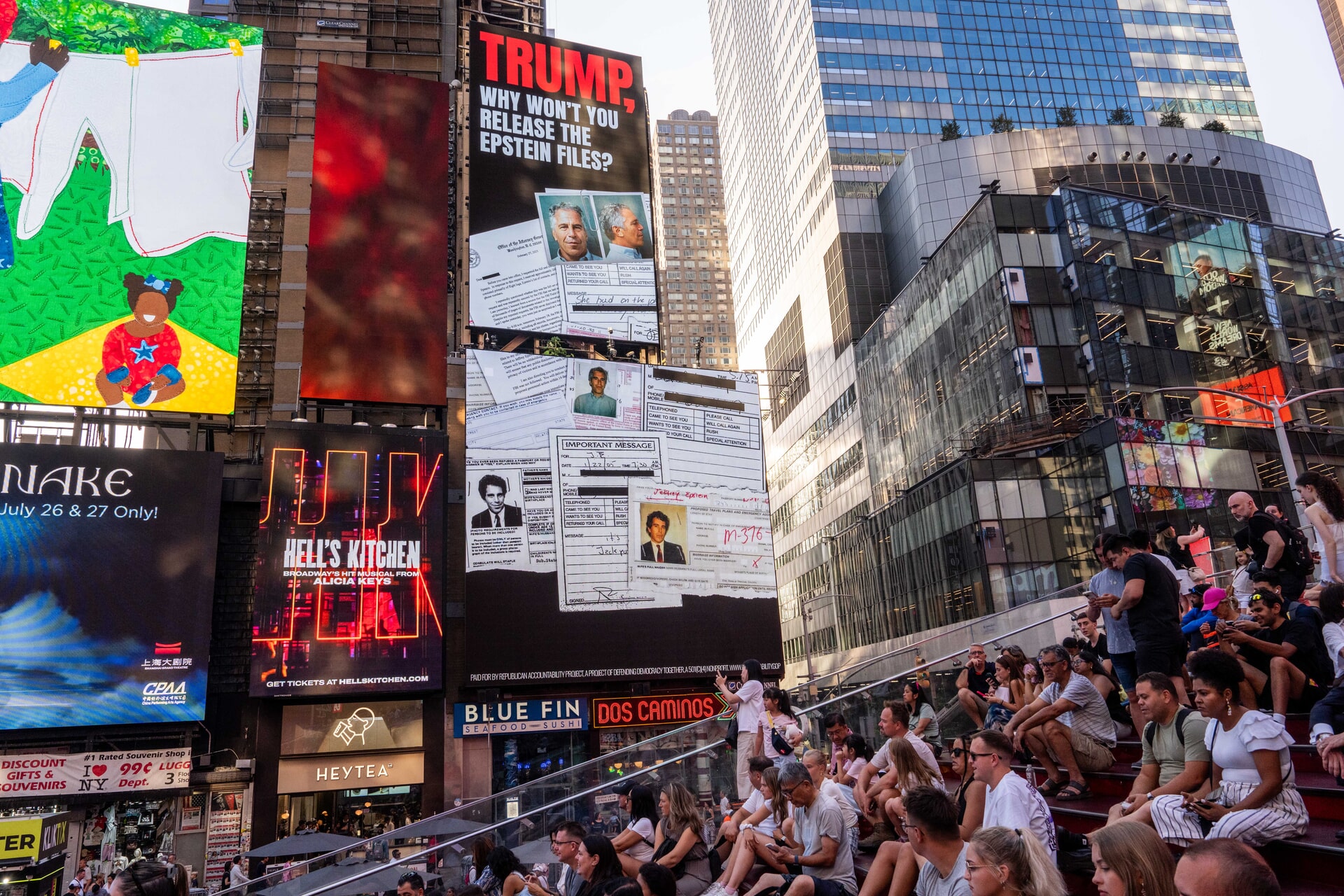 Getty Images
Getty ImagesFiles already released by the government included a 2016 deposition in which an accuser recounted spending several hours with Epstein at Trump’s Atlantic City casino, but did not say if she met Trump and did not accuse him of any wrongdoing.
Trump has also filed a $10bn (£7.4bn) lawsuit in Miami against The Wall Street Journal and media mogul Rupert Murdoch after the newspaper published a story on his alleged ties to Epstein.
The paper escribed a sexually suggestive letter that the newspaper says bore Trump’s name and was included in a 2003 album for Epstein’s 50th birthday.
The president denied writing the letter, calling the story “false, malicious, and defamatory”.
The letter was reportedly collected by disgraced British socialite Ghislaine Maxwell as part of a birthday album for Epstein, years before he was first arrested in 2006 and subsequently had a falling-out with Trump.
Follow STV News on WhatsApp
Scan the QR code on your mobile device for all the latest news from around the country


